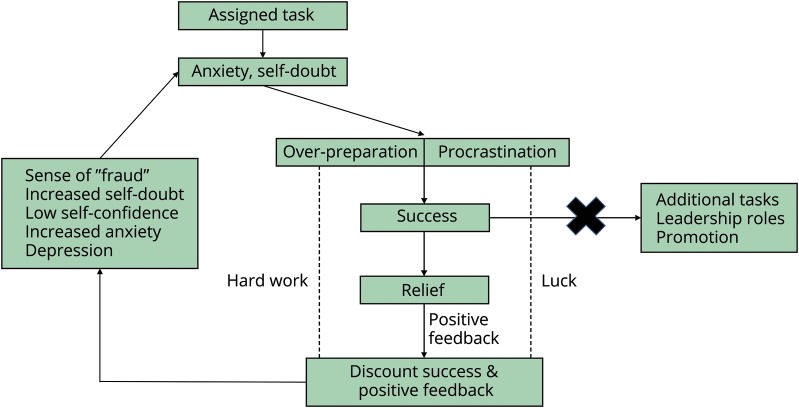Figure. The impostor phenomenon cycle.
Individuals with the imposter phenomenon (IP) experience anxiety and self-doubt when facing tasks, leading to maladaptive behaviors. Rather than believing that success relates to self-competence and accepting additional responsibilities, they discount the success as secondary to external factors such as luck or hard work alone. Individuals with IP have fixed beliefs that success does not reflect true abilities, so they disregard positive feedback. This leads to an increased sense of fraudulence and more self-doubt, anxiety, and depression. Adapted from: Sakulku J, Alexander J. The impostor phenomenon. International Journal of Behavioral Science 2011;6:75–97.

